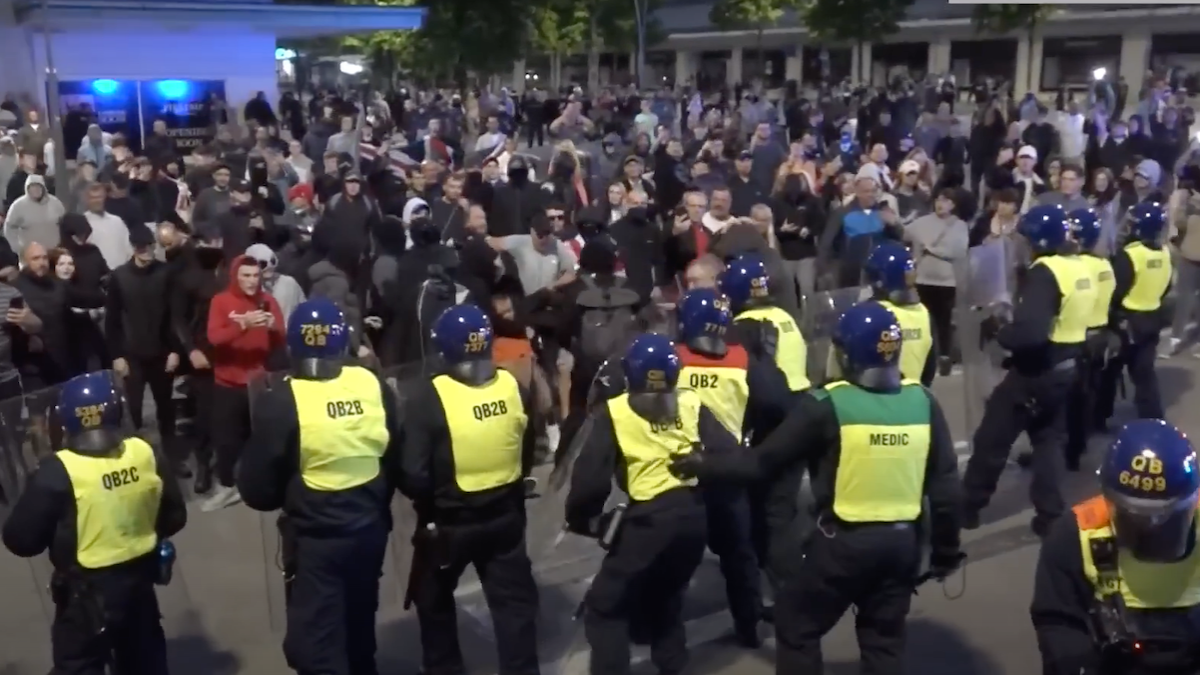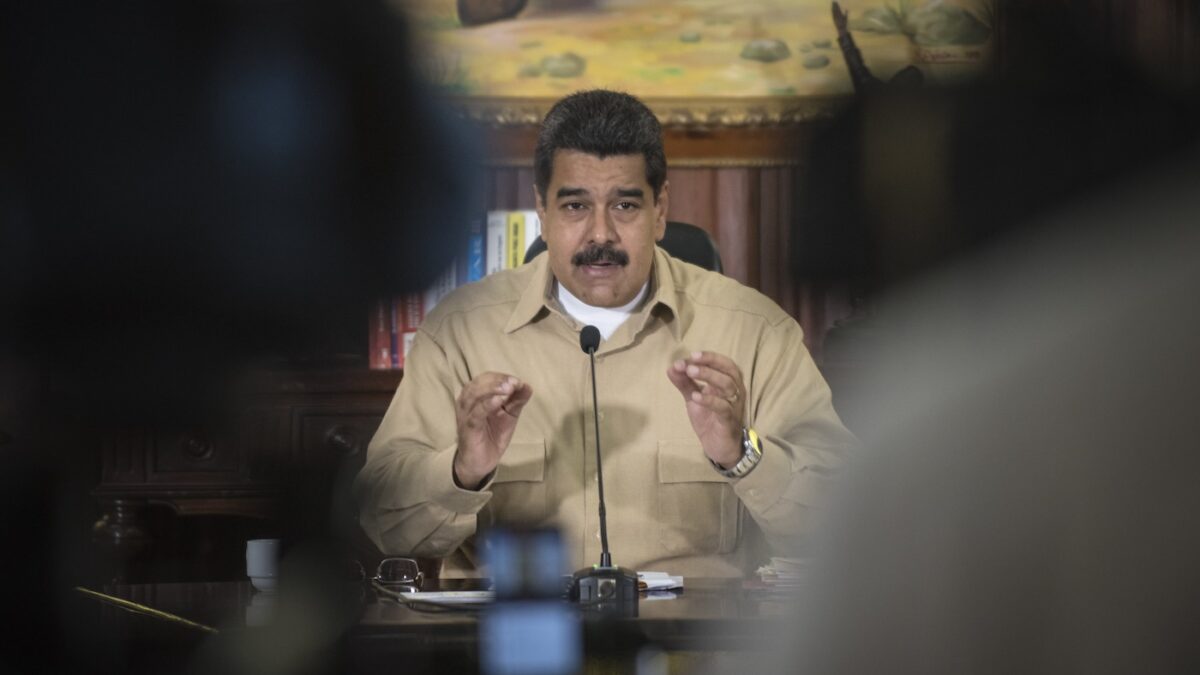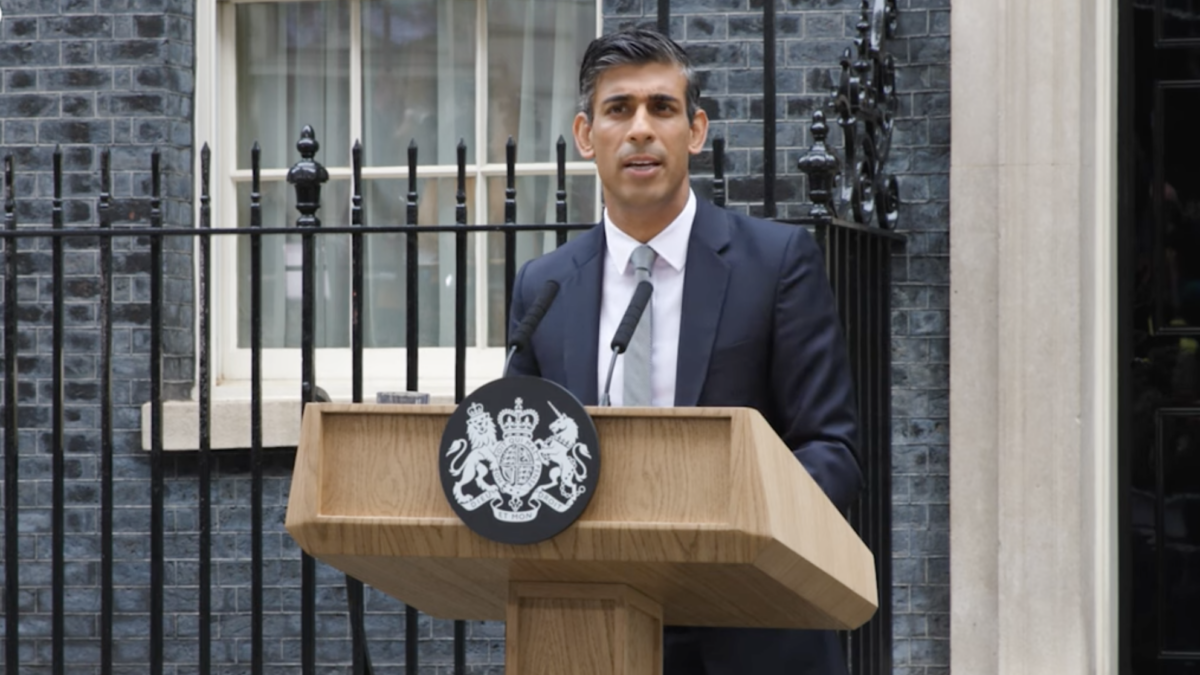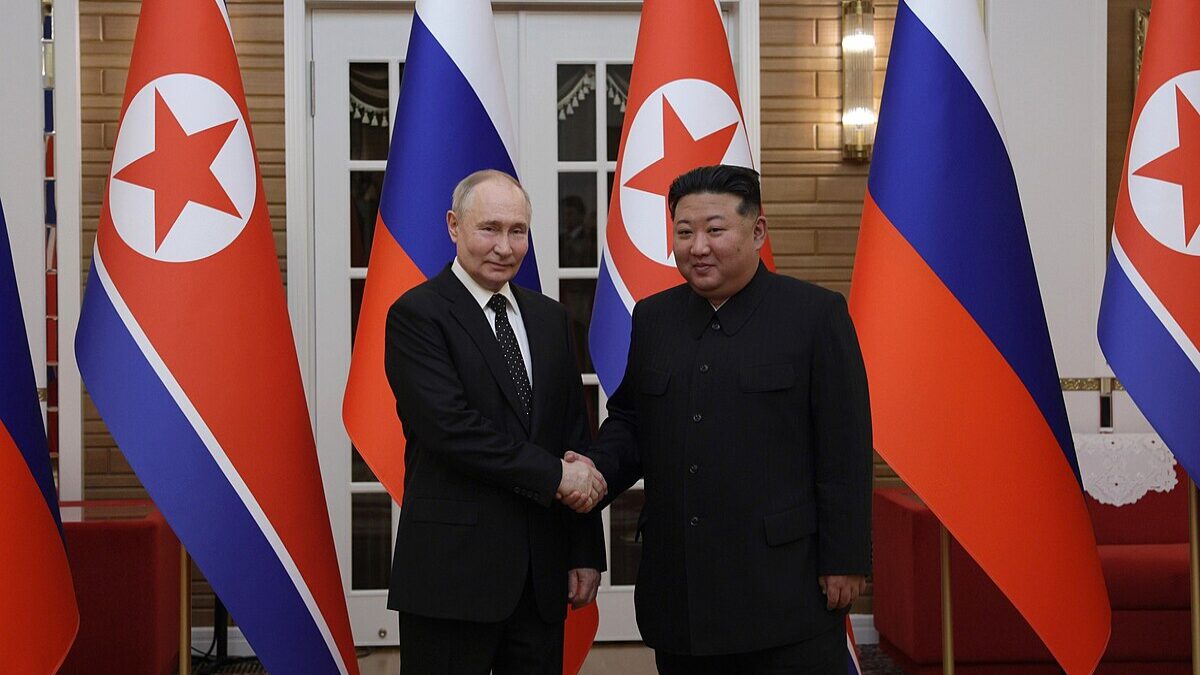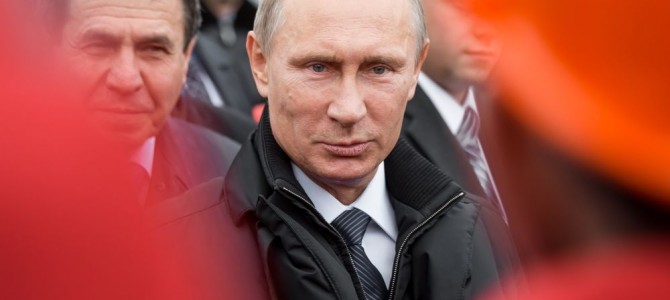
Earlier this month, GRU (Russian military intelligence) hackers broke into the computers at the headquarters of the Democratic National Committee, stealing their files. Then, July 22, on the eve of the Democratic National Convention, thousands of emails drawn from these files and embarrassing to the Hillary Clinton camp were publicly released through WikiLeaks with the clear intention of dividing the Democratic Party and electing Donald Trump president.
Asked about this by the press on July 27, Trump openly proclaimed he favored such Russian hacking, and hoped Russian dictator Vladimir Putin and company would do more of it to help expose Hillary. This remarkable and potentially felonious statement provoked a firestorm of criticism, so Trump subsequently walked it back—a rare event for the Don—saying he had been speaking “sarcastically.”
The fact that the GRU did actually conduct a black operation inside the United States to assist Trump, however, makes it not so easy to dismiss. Furthermore, this chain of events comes within a context that supports the theory of a Trump-Kremlin alliance.
The Love-Fest Between Putin and Trump
Putin has praised Trump, and rather than reject such praise Trump has returned it, calling the Russian dictator “a real leader” and dismissing his many murders of journalists and political opponents at home and abroad as “unproven.”
Last January, a British court found Putin had ordered the murder by Polonium poisoning of Alexander Litvinenko, a former FSB (secret police) agent who revealed the 1999 apartment building bombings in Moscow that Putin used to seize dictatorial power were the work of Putin’s FSB. Disturbingly, the billionaire appears be fine with that.
Furthermore, Aleksandr Dugin, the chief composer of the Kremlin’s new ideological synthesis of communism and fascism and its leading organizer of pro-Moscow ultranationalist and identarian fifth column movements in the West, has endorsed Trump. “In Trump we trust,” says Dugin, apparently proposing we substitute Trump for God in the American national slogan. The Russian state-owned propaganda agency Russia Today (RT), which broadcasts internationally, including within the United States, has also been unstinting in its support for Trump.
The Money-Fest Between Putin and Trump
Not only that, there is a money trail. Russian organized crime channels have funneled many millions of dollars into Trump’s businesses. Without these funds, Trump would be out of business, as, in consequence of his string of cons and failures, legitimate financiers in the West will no longer lend him money.
Trump campaign manager Paul Manafort, formerly chief henchman to Putin-allied Ukrainian dictator Victor Yanukovych, was himself directly involved in transferring millions of dollars of such Russian mob funds to the Don.
Nor is Manafort the only leading member of the Trump camp with deep ties to the Kremlin. Trump energy advisor Carter Page is a major investor in the Russian state-owned energy company Gazprom. As a Gazprom investor, Page has a personal financial interest in ending Western sanctions against Russia for its invasion of Ukraine, a move which, along with recognizing the Russian annexation of Crimea, Trump himself said in his press conference July 27 he was considering.
But it gets worse. Page actually endorsed the Russian invasion of Ukraine, going so far as to compare U.S. support for Ukrainian independence to police killings of black youth. “The deaths triggered by U.S. government officials in both the former Soviet Union and the streets of America in 2014 share a range of close similarities,” wrote Page in January 2015.
Then there is Trump national security advisor Michael Flynn, who had dinner with Putin last year. Such fraternization has borne fruit for the Kremlin, as evidenced by Trump operatives earlier this month eliminating language in the GOP platform advocating U.S. support for Ukraine’s defense.
This Is Cold War II
Trump has also expressed support for Syrian dictator Bashir Assad, who in alliance with Russian and Iranian military forces is flooding Europe with refugees, thereby stoking the fortunes of the Kremlin-allied ultra-right parties operating as part of Dugin’s fascist international. These include the anti-NATO French National Front, whose founder, Jean-Marie Le Pen, has also endorsed Trump. The National Front’s current leader, Marine Le Pen, also supported the Russian takeover of Crimea, and is being openly bankrolled out of Moscow.
Most importantly, Trump supports gutting the North Atlantic Treaty Organization, an objective that has been Moscow’s number-one foreign policy priority since the beginning of the Cold War. He has denounced NATO as being “obsolete,” and called for sharply reducing U.S. commitments to the alliance that has been the bulwark of American security since World War II. Not only that, Trump has stated that as president he would not necessarily honor the U.S. treaty commitment to defend a NATO ally if Russia attacks it.
So in summary, here’s the deal: In exchange for Russian funds and black operations support, Trump will break the western alliance and hand Europe over to Kremlin domination.
This presents us with two questions. First, is Trump a Quisling? Second, if he is, then can partisan loyalty be sufficient grounds for members of the Republican Party to acquiesce in participating in a Kremlin plot against the United States of America?


